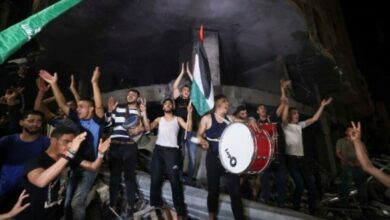
Syrian rebels in a former opposition stronghold in Homs will relinquish nearly half their heavy weapons as part of a landmark truce with the government, the provincial governor said Wednesday.
Talal Barazi told AFP that the second phase of the agreement over Waer, which had been the last opposition-held neighborhood in the central city, was under way.
The deal was reached in December and envisions Waer coming under government control in exchange for the lifting of a devastating three-year siege.
In the first step, carried out last month, about 700 people — 400 women and children and 300 rebel fighters — were evacuated from the district.
According to Barazi, "the second phase of the Waer agreement began four days ago and will continue until the beginning of February."
He said that it had started with a call for rebels to prepare to give up the weapons but that the handover had not yet started.
Barazi described the implementation of the deal as a "trust-building process".
Rebels are expected to hand over "nearly 50 percent of all medium- and heavy-weaponry, like machine guns and mortars," he told AFP by telephone.
Government forces will also open a second crossing point into the neighborhood, allowing residents and displaced individuals to travel more freely, Barazi added.
State institutions, including health centres, will begin gradually reopening in Waer.
Barazi said a "reconciliation process" would begin for the rebel fighters still in the district, estimated to number about 1,000.
"Whoever wants to regularize his status should present himself to the relevant authorities with information about his activities," Barazi said.
Opposition fighters who did not want to do so would be evacuated from the neighborhood in the third phase, he added.
They are expected to take the remaining 50 percent of heavy weaponry with them.
Similar local truces have been implemented in other parts of Syria, with rebels leaving towns or handing over weapons in exchange for an end to crippling sieges.
Both Syria's government and the United Nations have been pushing for such localized ceasefires as a way to end Syria's nearly five-year war, which has left more than 260,000 people dead.




